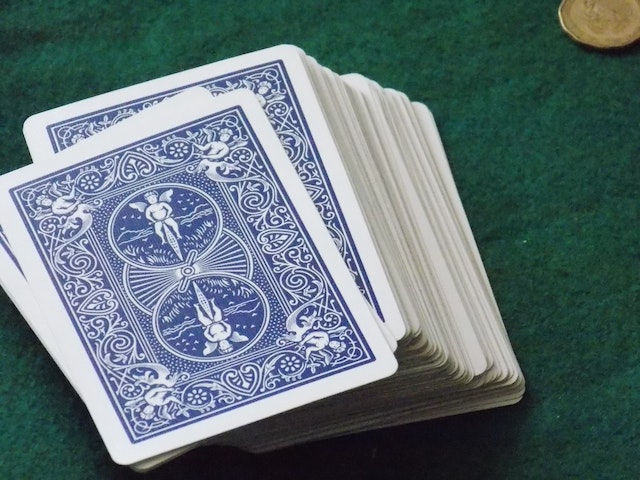As our population continues to age gracefully, it becomes increasingly vital to address the entertainment and cognitive stimulation needs of older adults. Card games stand out as a highly enjoyable and mentally stimulating activity. These games not only offer hours of fun but also provide numerous cognitive and social benefits. In this article, we will explore why card games are an excellent choice for the elderly and delve into some easy card games for dementia patients, ensuring their mental health and overall happiness.
Why Should the Elderly Play Card Games?
Card games have been a beloved pastime for generations and hold a special place in the hearts of older adults. Here are the key reasons why seniors should consider playing card games regularly:
1. Cognitive Stimulation
Card games require mental agility, strategic thinking, memory, and concentration. Regularly engaging in card games helps seniors keep their minds sharp and active, reducing the risk of cognitive decline. Games like Bridge and Gin Rummy particularly encourage strategic planning and decision-making.
2. Social Interaction
Many card games are played in groups, offering an excellent way for older adults to socialize. Social interaction is crucial for mental and emotional well-being, and card games provide a pleasant and engaging avenue to connect with friends and family. Playing games like Crazy Eights or Snap can turn gatherings into lively social events.
3. Stress Reduction
Playing card games can be a relaxing experience, allowing seniors to unwind and temporarily escape daily challenges. The focus required to play acts as a mindfulness exercise, promoting relaxation and reducing stress levels.
4. Emotional Well-being
Winning a card game can boost self-esteem and confidence, which is particularly important for older adults. Card games provide a sense of accomplishment and happiness, enhancing emotional well-being.
5. Sense of Purpose
A regular card game schedule gives older adults a sense of purpose and routine. It provides an activity to look forward to, combating feelings of loneliness or isolation.
6. Adaptability
Card games come in various forms and levels of complexity, making them suitable for all skill levels. Seniors can choose games that match their abilities and preferences, ensuring a fulfilling and enjoyable experience.
Easy Card Games for Dementia Patients
For older adults living with dementia, card games can provide mental engagement and joy. These games are simple to learn, easy to play, and perfect for stimulating cognitive function.
1. Euchre
Euchre is a fast-paced trick-taking card game that’s easy to learn and fun to play. It involves teamwork and strategy, making it ideal for seniors who enjoy engaging gameplay without overly complex rules.
Setup:
Use a deck of 24 cards (9 through Ace of each suit). Create two teams of two players each.
Objective:
Be the first team to score 10 points by winning tricks.
Gameplay:
- Shuffle and deal five cards to each player. Place the remaining cards face down, with one turned up, to determine the “trump” suit.
- Players take turns bidding or passing. The team with the winning bid decides the trump suit.
- Players play one card per round, and the highest-ranking card in the lead or trump suit wins.
- Keep score based on tricks won.
Why It’s Great:
Euchre combines strategy with a social element, encouraging teamwork and camaraderie.

2. Snap or Slap Jack
This quick reflex game is perfect for those who want lighthearted fun with simple rules.
- Setup:
Use a standard deck of 52 cards, removing Jokers. Deal cards evenly among players. - Objective:
Collect all the cards by “slapping” Jacks as they appear. - Gameplay:
- Players take turns placing a card face-up in the center.
- When a Jack appears, all players try to slap the card. The first to slap collects all the center cards.
- Continue until one player collects all the cards or set a time limit to determine the winner.
Why It’s Great:
Snap or Slap Jack improves reflexes and hand-eye coordination, making it a fun choice for dementia patients.
3. Crazy Eights
Crazy Eights is a simple shedding game that’s easy to learn and highly engaging.
- Setup:
Use a standard deck of 52 cards. Deal 5 cards (7 for smaller groups) to each player. The rest form the draw pile, with one card placed face-up as the start of the discard pile. - Objective:
Be the first player to get rid of all your cards. - Gameplay:
- Players take turns playing a card matching the top card’s suit or rank.
- If unable to play, draw from the pile until a playable card is found.
- Eights are wild cards that allow the player to choose a new suit.
- Continue until one player runs out of cards. Assign points for remaining cards in opponents’ hands.
Why It’s Great:
Crazy Eights is easy to pick up and encourages decision-making and strategy.
Also read: Best Workouts For Reducing Stress
4. Go Fish
Go Fish is a social, memory-based game perfect for players of all ages, including dementia patients.
- Setup:
Use a standard deck of 52 cards. Each player is dealt 5 cards (or 7 for smaller groups). - Objective:
Form sets of four cards of the same rank. - Gameplay:
- Players take turns asking others for specific ranks. If the asked player has cards of that rank, they must hand them over.
- If not, the asking player draws from the deck (“Go Fish”).
- When players collect all four cards of a rank, they set it aside.
- The game ends when all sets are completed. The player with the most sets wins.
Why It’s Great:
The straightforward rules and engaging nature make it a hit for casual gaming.
5. Gin Rummy
Gin Rummy is a more strategic game, perfect for seniors who enjoy planning and competition.
- Setup:
Use a standard deck of 52 cards. Remove the Jokers. Deal 10 cards to each player. - Objective:
Form sets (3+ cards of the same rank) or runs (3+ cards of consecutive rank in the same suit). - Gameplay:
- Players draw from the deck or discard pile and then discard one card.
- The game continues until one player forms all their cards into sets and runs and “goes out.”
- Assign points based on unformed cards left in the losing player’s hand.
- The first player to reach a predetermined score wins.
Why It’s Great:
Gin Rummy challenges the mind with strategic planning, making it an excellent choice for cognitive stimulation.
FAQs
Q1: Are card games suitable for all older adults, including those with dementia?
Yes, card games can be adapted to suit the abilities and preferences of older adults. Many card games have varying levels of complexity, making it possible for most seniors, including those with dementia, to find a game that suits them. Games like Snap or Slap Jack and Go Fish are particularly accessible.
Q2: How do card games benefit dementia patients?
Card games offer several benefits to dementia patients. They provide cognitive stimulation, encourage social interaction, reduce stress, and improve emotional well-being. Additionally, the familiarity of card games from their past can be comforting for dementia patients.
Q3: Can card games help with memory retention?
Card games often involve memory skills, such as remembering which cards have been played or keeping track of what other players have asked for in games like Go Fish. Playing card games can help older adults exercise their memory and improve retention skills.
Q4: Are there any specific considerations for playing card games with dementia patients?
When playing card games with dementia patients, choosing games with simple rules, providing clear instructions, and being patient and supportive is essential. Adapt the game to suit the individual’s abilities and focus on the enjoyment of the activity rather than competitive aspects.
Q5: Can card games be used as therapy for dementia patients?
Yes, card games are often used as part of recreational therapy for dementia patients. These games can help improve cognitive function, boost mood, and enhance social engagement, making them a valuable therapeutic tool.
Conclusion
Card games are more than just entertainment for older adults—they provide a gateway to mental stimulation, social interaction, and emotional well-being. Whether it’s a quick game of Snap or a strategic session of Gin Rummy, these activities ensure joy and engagement for seniors and dementia patients alike.
Incorporate these games into regular routines to bring smiles and strengthen cognitive health. Remember, the true essence of playing is in the connections formed and the memories created.


